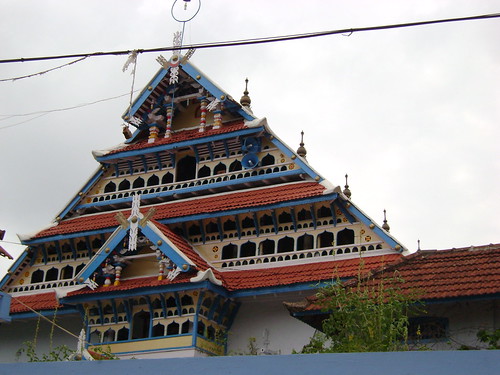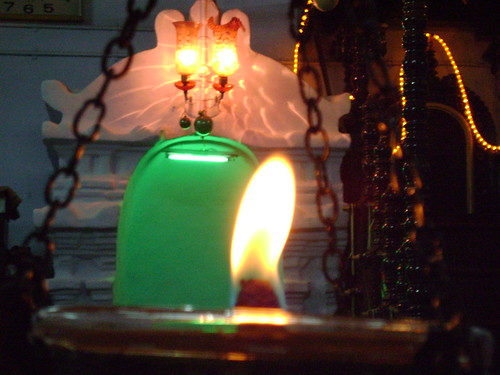Fifty seminars on his book ‘Tuhfat Ul Mujahidin Fee Akhbaril Burthugaliyeen’ to mark the celebrations that start after Ramadan
By Shafeeq Hudavi, TwoCircles.net,
Kozhikode: Kerala is all set pay tribute to the patriotic hero of 16th century Shaikh Zainuddin Makhdoom Second for his brave resists against the Portuguese invasion in the country.
Seminars, discussions and exhibitions will mark the saga of the fighter.

Ponnani Jama Masjid
The city-based Malabar Institute for Research and Development (MIRD) will hold 50 seminars in various colleges and institutes across the state. The seminars will highlight his book ‘Tuhfat Ul Mujahidin Fee Akhbaril Burthugaliyeen’, which is popularly known as Thuhfathul Mujahideen.
It is the first history book, written in Kerala, according to some of the historians. The book, which literally means ‘gift for fighters’ in Arabic, was written in 16th century in a bid to encourage the anti-Portuguese fighters.
The series of seminar will start after Ramadan, functionaries of the MIRD said. Dr. KKN Kurup, Calicut University former chairman and one of the key functionaries of MIRD, will lead the seminars.
“Our attempt assumes significance in the present scenario, where such books are fast consigned to oblivion. The youngsters, especially the student community, should be aware of such works, which ideologically helped the entire society to resist the invasion,” said Dr Kurup.
“The first anti-colonial book which emerged from the state, failed to get enough attention owing to the neglect of the historians and the successive governments. In a period, which needs awareness against imperialism and psychological invasions, the book that reminds of the need to resist the external forces, has significance,” Kurup added.

The famous “Lamp of Ponnani”
The book asserts the freedom of Indian Ocean, an idea that one country has the freedom of its own and one country cannot conquer another country. The book also played a crucial role in bringing the Muslims and Hindus under the Zamorin, the Hindu ruler, who ruled Malabar based in Kozhikode then.
“The book triggered unity and unified Muslims and Hindus against the Portuguese by stating ‘King Zamorin is the king of whole Muslims of Kerala’. The book said Zamorin is the Amir of Kerala,” he added.
Later, after the Portuguese era came to an end in Kerala, the book emerged as a nightmare for the British. The British had imposed restrictions on the writers while they attempted to translate it in to Indian languages. Turning scared of the aftermaths, the Tamil Translation was banned in 1942. The chapter ‘Jihad’, the soul of the book, was removed while it was translated to Malayalam in 1930.
“The book by a Muslim scholar, exhorting to rally against the invaders under the Zamorin and to retain him at the helm must have irritated the British,” Kurup informed.
The book details references to the social system of Malabar during the 16th century. ‘Tuhfat Ul Mujahidin’ has been translated into more than 30 languages in India and abroad.
Zainuddin Makhdoom Second, grandson of Zainuddin Makhdoom First of Ponnani, was born at Chombal in Kozhikode district in AD 1532. After getting the primary knowledge, the scholar went to Makkah and from there to Madina for higher studies, where he was the disciple of prominent Islamic scholars for few years.
The Islamic scholar, who was also a multi-lingual scholar and diplomat, kept good relation with various Muslim kings across the globe, including Ottoman rulers, Mughal emperor Akbar, Mamluk rulers of Egypt and Ibrahim Ali Adil Shah and Mohammed Adil Shah of Bijapur.
Makhdhoom helped Zamorins against Portuguese by seeking help from Mamluks of Egypt to strengthen the naval army of Zamorins.
The rich tradition of Fiqh, Islamic jurisprudence of Kerala Muslims, owes much to this great scholar. Functioning at Ponnani, the Makkah of Malabar, Makhdoom’s Dars, ancient form of Madrassa, drew the attention of Muslim world. Students from across the world came here to participate/study in his Dars, which was functioning for 36 years. His book ‘Fath’hul Mueen’ is one of the reference book on Fiqh.
According to a local historian T V Abdul Rhaman Kutty, the book was printed from Malaysia, Java and Singapore.
Makhdoom breathed his last at Chombala in 1618 A.D.

